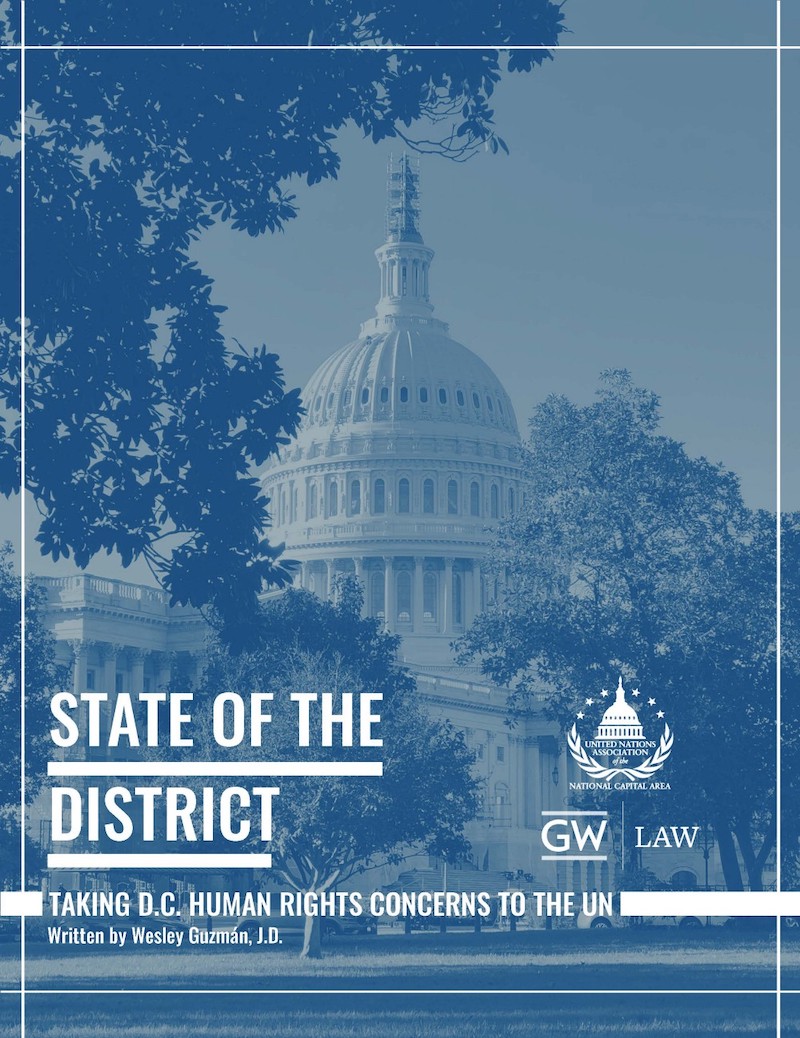Executive Summary
Capturing the headlines in April 2020 as the COVID-19 pandemic spread across the globe, governors across the United States found themselves battling a sitting President along with a deadly virus. As hospitals became overwhelmed, unemployment numbers soared, and families across the country suddenly faced questions about their ability to pay their rent, state governments showed no hesitation in requesting federal assistance. As the President resisted, Congress attempted to step up and fill in the gaps by passing a controversial bailout for the U.S. healthcare system and economy. The bill reflected not only the pleas of the governors, but also of senators and representatives advocating for their constituents in Congress.However, amidst the chaos on Capitol Hill during the months of February, March, and into April, one voice in particular went unheard. In the final bailout bill, the District of Columbia received at least $725 million less than every state, despite having a higher population than two states, and paying more in federal taxes than twenty-two states.¹ Congress had classified D.C. in the relief bill as a federal territory, rather than a state, and as a result withheld necessary aid from its citizens.
For some, this may come as a shock – how could the federal government fail to care for its own national capital, the celebrated American core of freedom and democracy? But to communities in the District, this comes as no surprise. In fact, it is merely another chapter in over two centuries of human rights violations perpetuated in the nation’s capital. To this day, D.C. remains one of the most significant blights on the American vision of full and equal political participation, as more than 700,000 United States residents are denied meaningful representation in Congress as a result of their location.
D.C. is classified in the Constitution and federal legislation as a Federal District, not a state, meaning that it is excluded from sending any voting representative to Congress. Furthermore, Congress exercises substantial control over the local legislation, budgets, and penal system, undermining the political force of Washington voters. With their ability to meaningfully participate in their federal government effectively denied, and their power over their local government significantly hindered, D.C. residents are left unable to sufficiently address the myriad of ills that accompany urban communities.
But Washingtonians are a stubborn bunch, and despite years of political defeats, blatant racial discrimination, and even a global pandemic, the movement for the respect of human rights in the district remains undeterred. This paper looks at a few of the advocates working in D.C. and their experience supporting the respect of human rights in D.C. at the United Nations. It begins with laying the historical and legal foundations for the continuing disenfranchisement and other human rights violations in D.C. It then follows the story of the D.C. Human Rights City Alliance (DCHRCA), the United Nations Association of the National Capital Area (UNA-NCA), the GW Law International Human Rights Clinic (GW), and the Gender Justice Project at UDC Clarke School of Law (GJP) in their participation in the Universal Periodic Review process, a mechanism of the U.N.’s Human Rights Council.
Learn More









